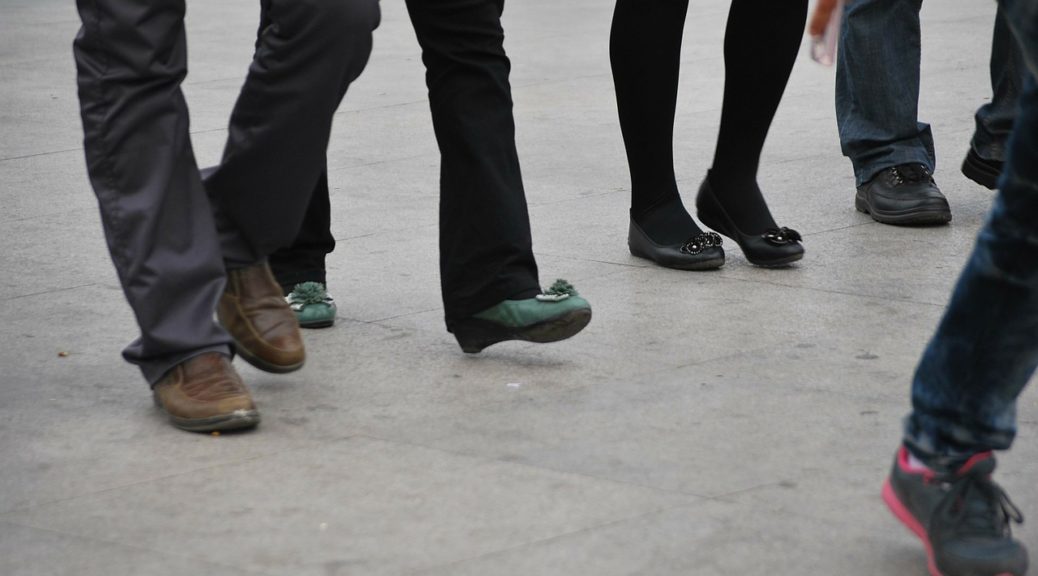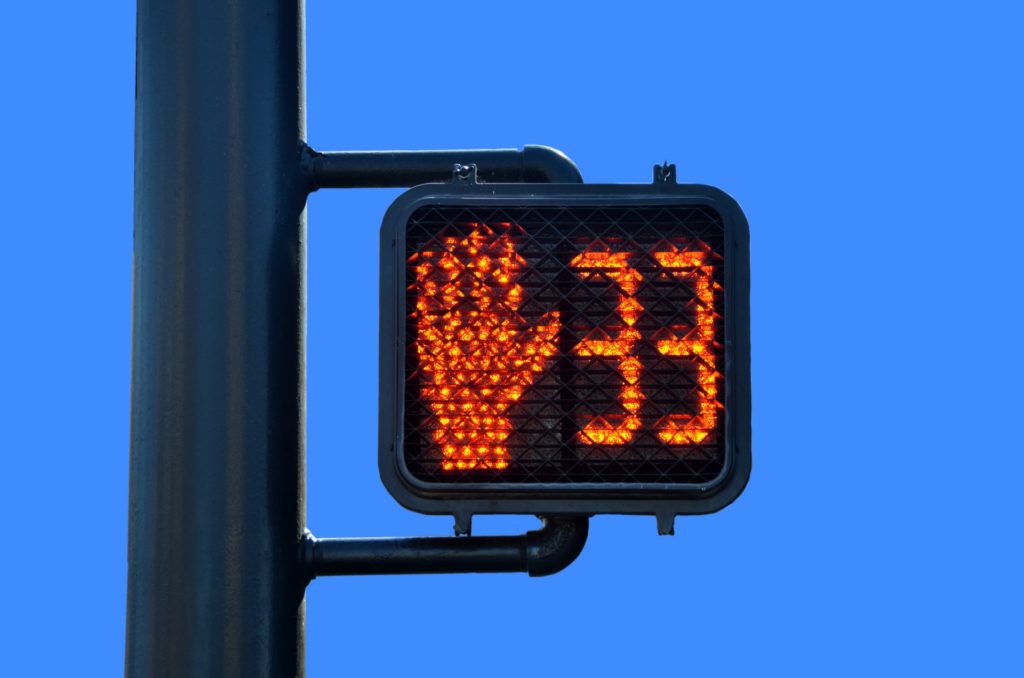By Shelly Hacco
This happened early on a Monday morning, around 7am. While most people at this hour are happily dreaming in their warm beds, I was crossing the street in LA’s downtown financial district, at 7th and Flower to be exact. See, I live in North Hollywood and I work at USC, a major distance for someone who does not drive and has to be on campus at 7:30 in the morning. However, as horrible as this situation sounds, this daily commute is actually thoroughly enjoyable. I take a 25 minute train ride down to the 7th St. Center Metro stop, usually wait about 5-10 minutes for the bus, and then ride the bus to campus for another 15 minutes (and then vice versa back home). With the bustle of a busy work day, this daily journey is usually the most relaxing part of my day. Instead of impatiently trudging through traffic, cursing the overpopulated freeways and lack of free parking around campus, I get to sit back and enjoy my favorite pastimes, reading novels or listening to music/intriguing podcasts, while scoping out my fellow commuters. Let me also note that I am an LA native who remembers a time when Los Angeles did not have a subway and when downtown was a dead zone infiltrated by the homeless. These days, when I ride the metro, I think about what a privilege it is to zoom to my destination, to bear witness to the growth of businesses in the downtown area, and to see more and more office workers, students, artists (and yes, even residents) reclaim the city.
Now, on one particular Monday morning commute, I was sucked deep into the popular podcast series, Serial, which tells the true story of a teenage boy who may or may not have been wrongfully sentenced for the murder of his ex-girlfriend. I urge everyone who likes crime dramas mixed with the tragedy of everyday life, to look into this free series. Each podcast is like the episode of a TV show; you just tune in for the launch of each new phase of the story or, like most people of the Netflix/ Hulu generation, just wait until all the episodes have aired and then binge listen to everything whenever you get the chance. Listening to Sarah Koenig, the narrator and lead journalist, explain the reputation of Baltimore’s Leakin Park, I emerged from the underground subway to the corner of 7th and Flower. To my joy, I noticed the bus that I take to campus gliding my way down Flower and that, furthermore, the little green man on the pedestrian walk signal had just turned to the flashing red hand, giving me exactly 12 seconds (more than enough time) to cross the street to the bus stop on the adjacent corner. The countdown next to the flashing hand still read “4” when my foot safely stepped onto the opposite sidewalk curb; however, my joy quickly turned to unease when a police officer stepped out of the crowd from which he was hiding and asked me to please move aside. Though I am always weary of men in uniforms, I obliged without concern; after all, what could he possibly want with me? I removed my headphones and asked him what he wanted; I was in a hurry because my bus was now pulling up to the stop and I had about 2 minutes to get onboard before it went on its way. The police officer informed me that, though I crossed in the designated crosswalk, it was an illegal cross because the law forbids pedestrians to start crossing after the light begins to blink.
Now, I have always been under the assumption that a blinking pedestrian walk sign accompanied by a timed countdown was equal to a yellow traffic light, the middle signal that informs drivers that a red light is eminent and that they should either slow down to a stop or proceed with caution. Considering that Flower is a one way street and that the only vehicle in sight was my bus (which was not only guaranteed to stop at the corner of 7th and Flower but was also still at least two massive blocks away), the word “danger” did not even slightly enter my mind. By this point, I noticed two other people standing aside with another officer and immediately felt the knot in your stomach that comes before inevitable bad news. This officer was going to give me a ticket. I was outraged. How dare he and this other officer hide in a crowd, waiting for unknowing pedestrians to innocently break a law that almost no one knows. They were like fisherman patiently waiting in the boat with their bait out, knowing that this corner was a gold mine for ignorant fish. I yelled at him. Although I felt good about “giving it to the man,” I realize now that having this attitude was not in my best interest and that perhaps “appealing to the man” would have been a more effective course of action.
This ticket came out to be $197, an amount I will pay so that I can avoid the hassle of hauling myself to the Los Angeles Metropolitan Courthouse. The point of this story? As I wish someone had told me of this little known traffic law, I write this cautionary tale in the hopes that these fishermen won’t have so much luck in their future fishing sprees. 7th and Flower is not the only downtown intersection where you will find fishing policemen; around the USC campus is another popular target (as many students have woefully come to realize). Please heed my warning, even if you are in a designated crosswalk, crossing while the red hand is flashing is considered a violation and will lead to a very costly ticket. I still don’t think it’s fair and I still might cross if I means I can catch a bus in time, but at least now I will look twice, once for traffic danger and once more for policemen out fishing.
Featured image from Pixabay
Shelly Hacco works at the USC American Language Institute as the Office Manager. Shelly also heads the ALI Conversation Groups and the One-on-One Conversation Partner programs. Shelly holds a B.A. from USC’s School of Theater (with a minor in Business Administration) and a Masters from USC’s Liberal Studies Program. She enjoys reading, crafting, traveling, and performing in theatre productions across LA.


